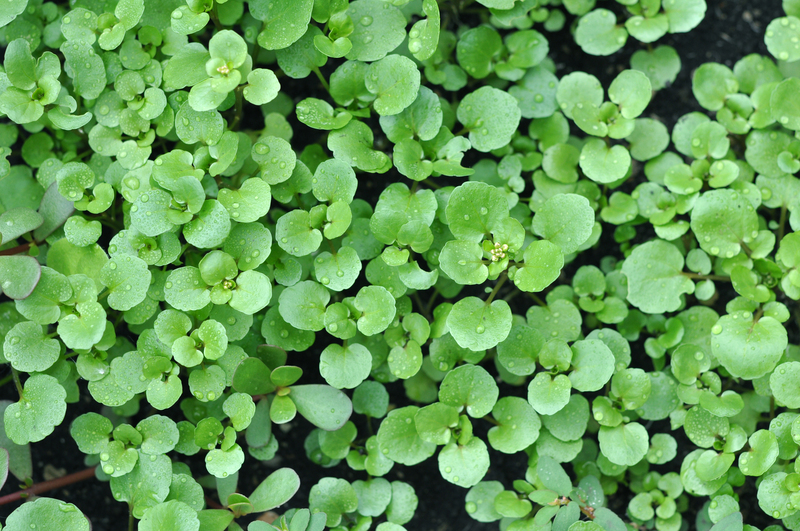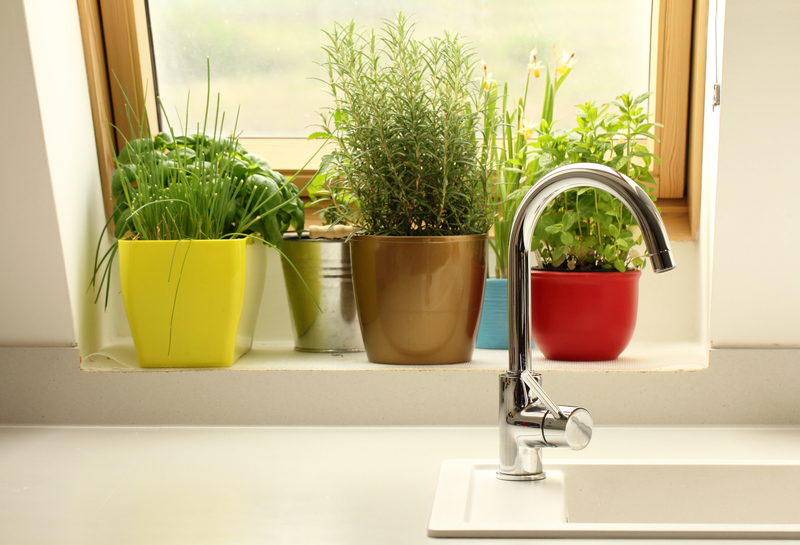Tips for Hot Weather Garden Care
Posted on 05/06/2025
Gardening in hot weather can be particularly challenging, even for seasoned gardeners. High temperatures and intense sunlight can quickly stress plants, often leading to wilting, sunburn, and even death if not handled properly. However, with thoughtful preparation and effective strategies, you can maintain a thriving garden even during the most sweltering summer days. Below are some practical and essential tips for hot weather garden care that will help keep your plants healthy and productive.
1. Water Wisely
Watering is one of the most critical aspects of garden care in hot weather. Here are some best practices:
Early Morning Watering
Watering your garden early in the morning ensures that the plants have enough moisture to withstand the heat of the day. Early watering also allows water to penetrate the soil deeply, minimizing evaporation caused by the sun.
Deep Watering
Instead of watering lightly and frequently, aim for deep watering. This practice promotes the growth of deep-rooted systems, which are more resilient during drought conditions. Check the soil moisture about 6-8 inches deep to determine whether your plants need water.
Avoid Over-Watering
It might be tempting to over-water in hot weather, but that can lead to root rot and fungal diseases. Make sure to monitor the soil's moisture level and let it dry out a bit between watering.

2. Mulch Generously
Mulching is particularly beneficial during hot weather. A thick layer of mulch can help in several ways:
Retain Moisture
A 2-3 inch layer of organic mulch like straw, wood chips, or compost can help retain soil moisture by reducing evaporation.
Regulate Soil Temperature
Mulch acts as an insulating layer, helping to keep the soil temperature cooler and more stable.
Weed Control
Mulch also suppresses weed growth, which can compete with your plants for water and nutrients.
3. Choose Heat-Tolerant Plants
Some plants are better adapted to hot climates than others. Opt for heat-tolerant varieties to ensure your garden can withstand high temperatures. Here are some plants known for their heat resistance:
Vegetables
Tomatoes, peppers, eggplants, okra, and various herbs like basil and rosemary thrive in hot conditions.
Flowers
Marigolds, zinnias, sunflowers, and cosmos are excellent choices for hot weather.
Perennials
Consider plants like lavender, yarrow, and coneflowers, which are highly heat-tolerant.
4. Provide Shade
Intense sun can scorch plants, especially those that are not naturally adapted to high light levels. Use shade cloths, umbrellas, or even taller plants to provide some shade for the more sensitive ones.
Temporary Shade
For a quick and effective solution, you can erect a temporary shade using cloth or netting. These can be particularly useful for new transplants or young seedlings that are not yet established.
Permanent Shade
Consider planting larger trees or shrubs strategically to offer natural shade. Use companion planting techniques to provide shade with taller plants.
5. Monitor for Pests and Diseases
Hot weather can often lead to an increase in garden pests and diseases. Common pests like aphids, spider mites, and whiteflies thrive in warm conditions.
Regular Inspections
Make it a habit to inspect your plants regularly for signs of pests and diseases.
Integrated Pest Management (IPM)
Use a combination of biological, cultural, and mechanical methods to control pests. For example, introduce beneficial insects like ladybugs to control aphid populations.
6. Soil Health
Healthy soil is the foundation of a healthy garden. Here are some tips to maintain soil health during hot weather:
Add Organic Matter
Amend your soil with compost or aged manure to improve its water retention capabilities.
Avoid Soil Compaction
Walking on your garden beds can compact the soil, reducing its ability to absorb water. Use designated paths to avoid compacting your soil.
7. Fertilize Cautiously
In hot weather, plants' metabolic rates increase, but so does the potential for fertilizer burn. Follow these guidelines to fertilize effectively:
Slow-Release Fertilizers
Opt for slow-release or organic fertilizers that provide nutrients over a longer period, reducing the risk of burning your plants.
Balanced Nutrients
Ensure that your plants receive a balanced diet of nitrogen, phosphorus, and potassium. Over-fertilization, particularly with nitrogen, can make plants more susceptible to heat stress.
8. Pruning and Deadheading
Pruning and deadheading can help improve air circulation around your plants and concentrate the plant's energy on new growth rather than old, spent flowers.
Timing
Avoid heavy pruning during the hottest part of the day to minimize stress on the plants. Early morning or late afternoon is the best time for these activities.
Tools
Ensure your tools are sharp and clean to make precise cuts and prevent the spread of disease.
9. Container Gardening Tips
Gardening in containers presents its own set of challenges during hot weather, as containers can dry out more quickly than garden beds.
Choose the Right Containers
Use larger containers that hold more soil and retain moisture longer. Terra cotta pots are great, but they can dry out quickly; consider plastic or glazed pots instead.
Pots Placement
Place your pots in a location that receives morning sun and afternoon shade. This will give your plants a break from the intense rays during the hottest part of the day.
Water Retention Crystals
Mix water retention crystals into your potting mix to help maintain soil moisture.

10. Use Drip Irrigation
Drip irrigation systems can be a lifesaver during hot weather. These systems deliver water directly to the plant's root zone, minimizing evaporation and ensuring efficient water use.
Customizable
Drip irrigation systems are highly customizable and can be set up to suit the specific needs of your garden.
Automation
Consider using a timer to automate your drip irrigation system, making sure your plants get water even when you're not at home.
Conclusion
In hot weather, your garden requires special care to thrive. By watering wisely, mulching generously, choosing heat-tolerant plants, providing shade, monitoring for pests and diseases, maintaining soil health, fertilizing cautiously, pruning effectively, considering container gardening tips, and using drip irrigation, you can ensure your garden stays vibrant and healthy all summer long. With thoughtful preparation and diligent care, your garden can be a green oasis even under the blazing sun. Happy gardening!
Latest Posts
Inspiring Ways to Refresh Your Garden This Autumn Season
A Step by Step Guide to Keeping Artificial Grass Fresh and Spotless
Creative Planting Ideas to Design a Serene Zen Oasis







